If you're looking to craft a compelling recommendation letter for an airline pilot, you're in the right place! This type of letter is crucial in showcasing the candidate's skills, experience, and dedication to aviation. A well-structured recommendation can make a significant difference in a pilot's career advancement. So, let's dive into the key elements that will help you write an impressive letter that stands out!
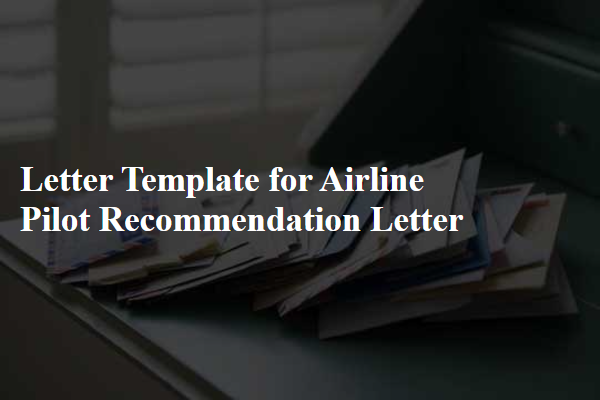
Introduction and Relationship
An accomplished airline pilot, Jane Doe, has consistently demonstrated exceptional flying skills and professionalism during her tenure at Skyward Airlines. During the past five years, I have had the pleasure of working alongside Jane in various capacities, including co-piloting multiple international flights to destinations such as London (Heathrow Airport) and Tokyo (Narita International Airport). Jane's impressive track record includes over 5,000 flight hours, proficiency in operating the Boeing 737 and Airbus A320, and a strong commitment to safety and regulatory compliance. Her ability to remain calm and collected under pressure during critical situations showcases her exemplary decision-making skills and leadership qualities.
Pilot's Skills and Competencies
An airline pilot's skill set encompasses various core competencies essential for safe and efficient flight operations. Exceptional communication abilities enable pilots to interact effectively with air traffic control, crew members, and passengers during critical situations. Proficient decision-making skills are crucial, especially during emergencies, with a focus on rapidly analyzing situations and identifying appropriate responses. Outstanding technical knowledge of aircraft systems, operational procedures, and navigation instruments is a vital component, ensuring pilots remain adept at managing complex flight scenarios. Strong teamwork capabilities foster collaboration within the cockpit, significantly improving safety and performance. Lastly, a commitment to continuous training and compliance with aviation regulations enhances a pilot's capacity to operate within both domestic and international airspace regulations, ensuring the safety of all involved.
Experience and Flight Hours
Experienced airline pilots, such as those with Commercial Pilot Licenses (CPL) and Airline Transport Pilot Licenses (ATPL), often accumulate substantial flight hours. A typical airline pilot may have over 1,500 flight hours, with many accruing experience in diverse aircraft types, including Boeing 737s or Airbus A320s. Training programs at aviation academies, like Embry-Riddle Aeronautical University or the United States Air Force Academy, provide foundational knowledge and hands-on experience. Flight hours are meticulously logged, detailing specific maneuvers, night flying, cross-country flights, and instruments flying (IFR). Commercial operations, such as charter services or regional airline flying, enhance a pilot's proficiency and adaptability in high-pressure situations, essential for maintaining safety on each flight.
Character and Professionalism
A highly skilled airline pilot exhibits exceptional character and professionalism. Integrity, demonstrated through adherence to safety regulations and commitment to ethical flying practices, sets these pilots apart. Their strong communication skills foster teamwork, essential during complex flight operations in varying conditions. Reliability manifests in punctuality and meticulous flight planning, ensuring passenger safety and comfort. Additionally, a proactive approach to continuous improvement, often seen in participation in recurrent training programs and adherence to best practices, reinforces their dedication to excellence. Such attributes build trust among crew members and passengers alike, creating a positive and secure flying environment.
Conclusion and Contact Information
A strong conclusion in a recommendation letter for an airline pilot underscores the candidate's suitability for the role, emphasizing their extensive flight hours, superior technical skills, and exemplary leadership during flight operations. Highlighting their commitment to safety protocols and adherence to Federal Aviation Administration (FAA) regulations reinforces their credibility in the aviation field. Providing a personal endorsement illustrates confidence in their abilities, ensuring potential employers see the pilot as an asset to their team. Additionally, including contact information, such as a phone number and professional email address, facilitates direct communication for any follow-up inquiries or further discussions, enhancing the letter's effectiveness.
Letter Template For Airline Pilot Recommendation Letter Samples
Letter template of a personal recommendation for an aspiring airline pilot.
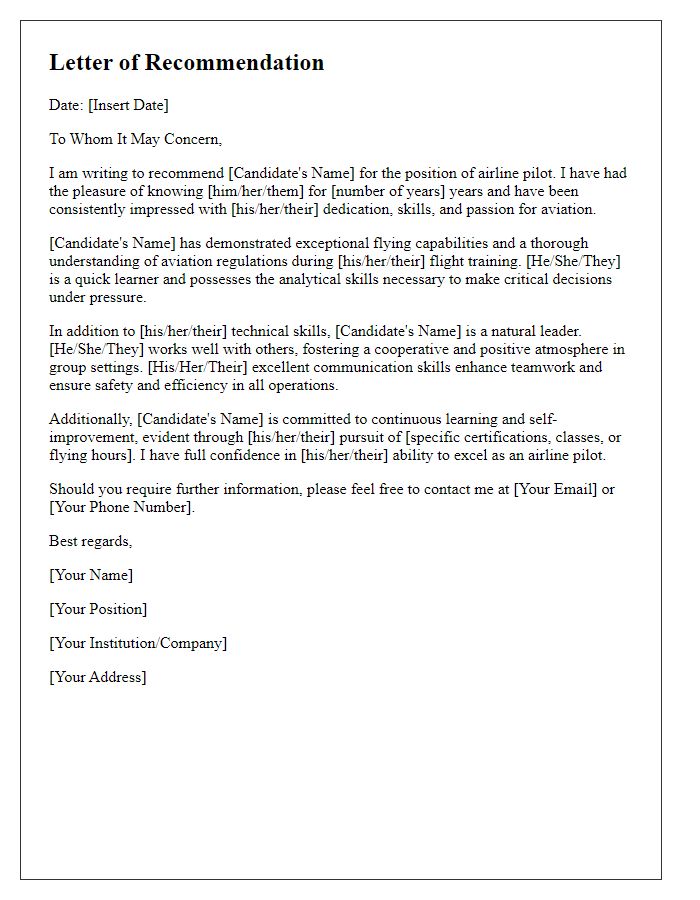
Letter template of a colleague's recommendation for a senior airline pilot.
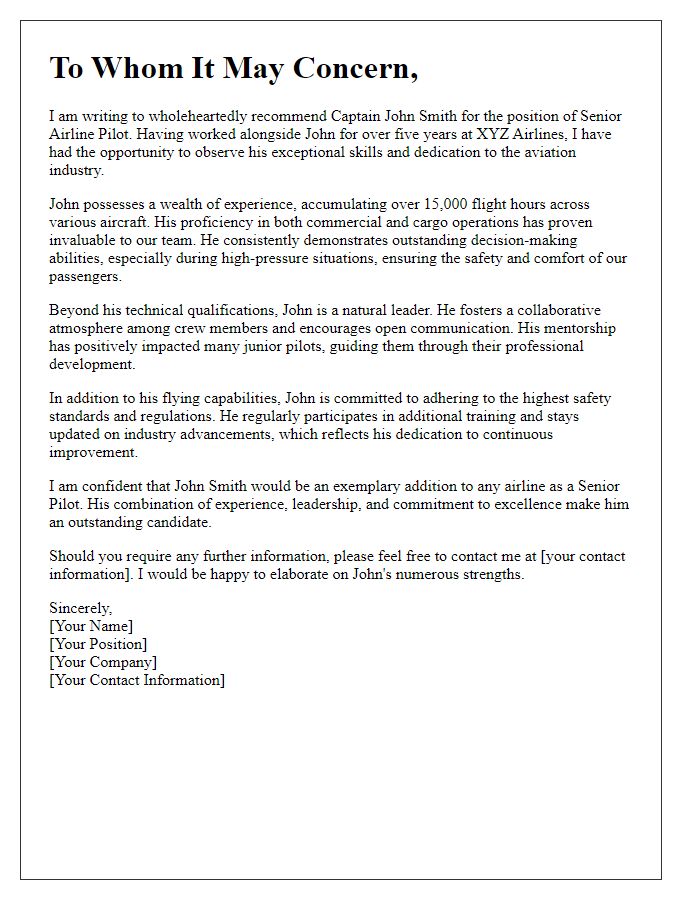
Letter template of an airline manager's endorsement for a pilot candidate.
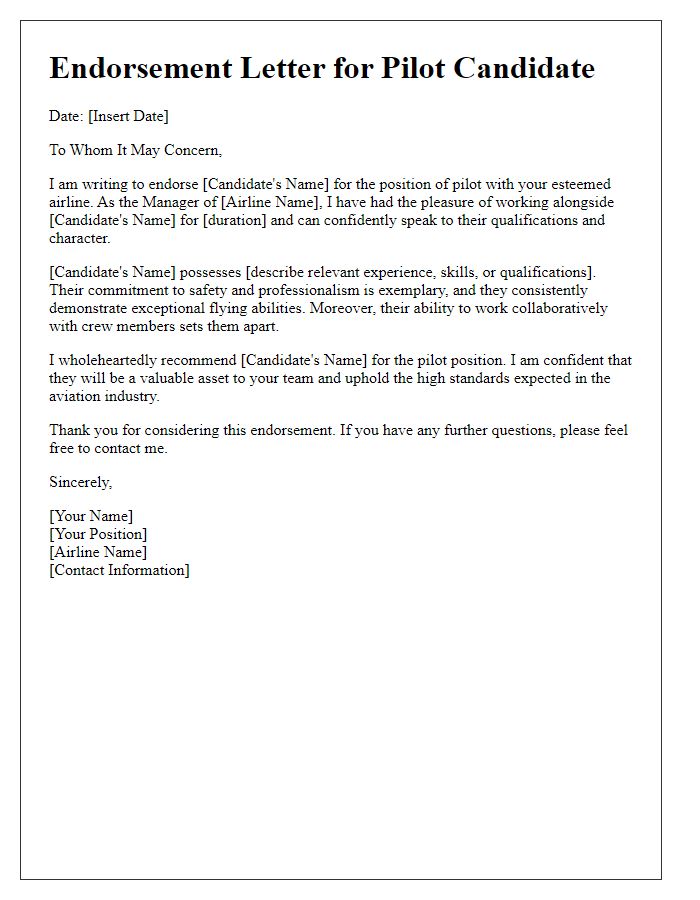

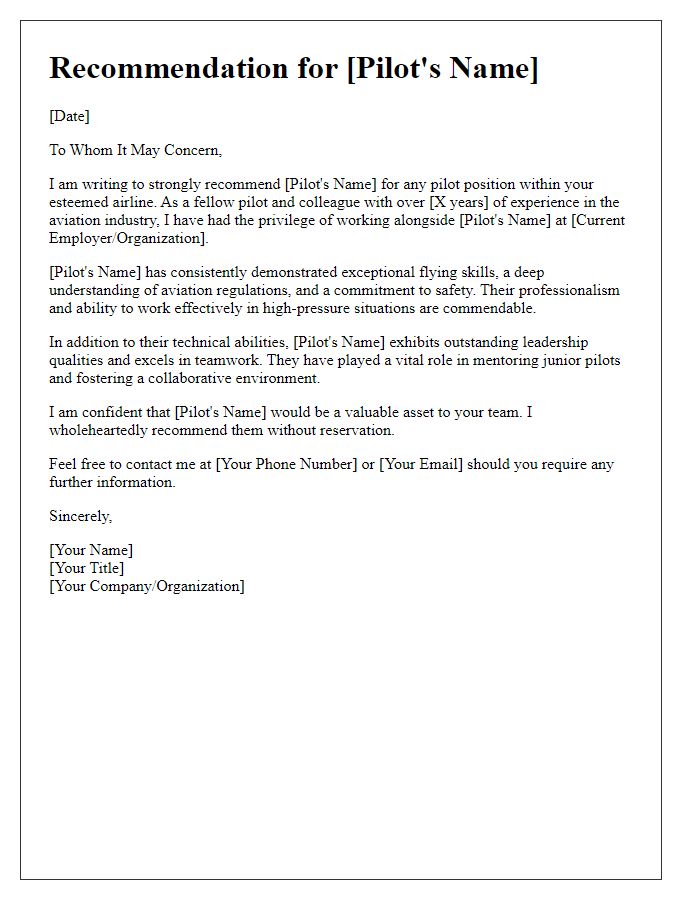
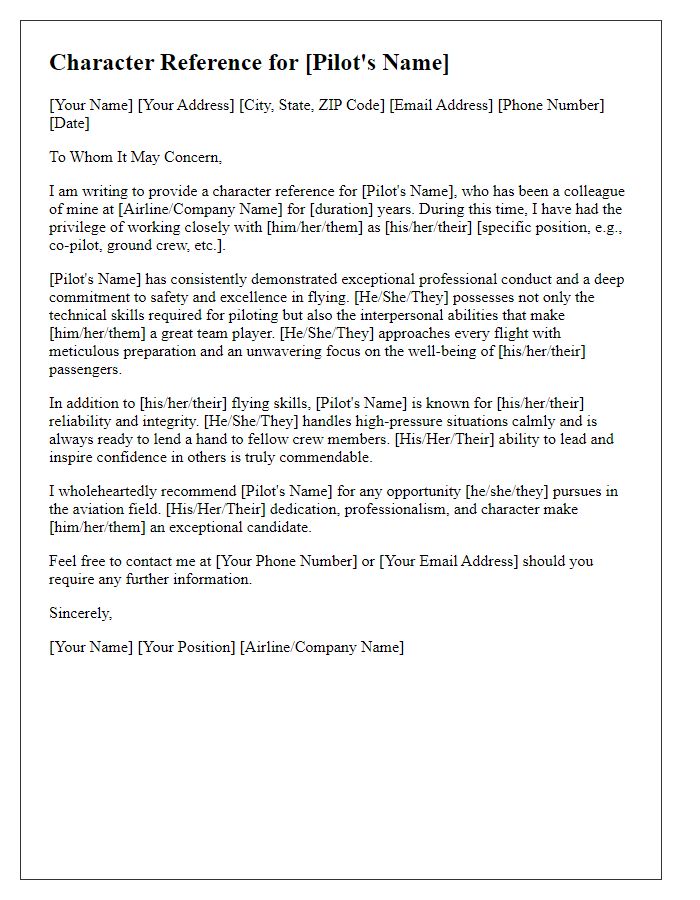
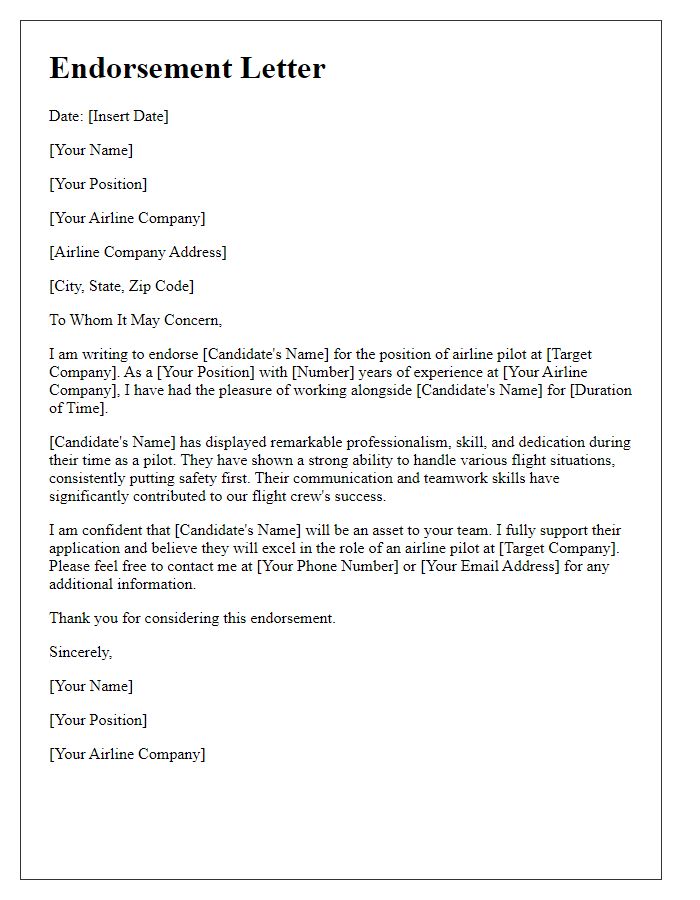
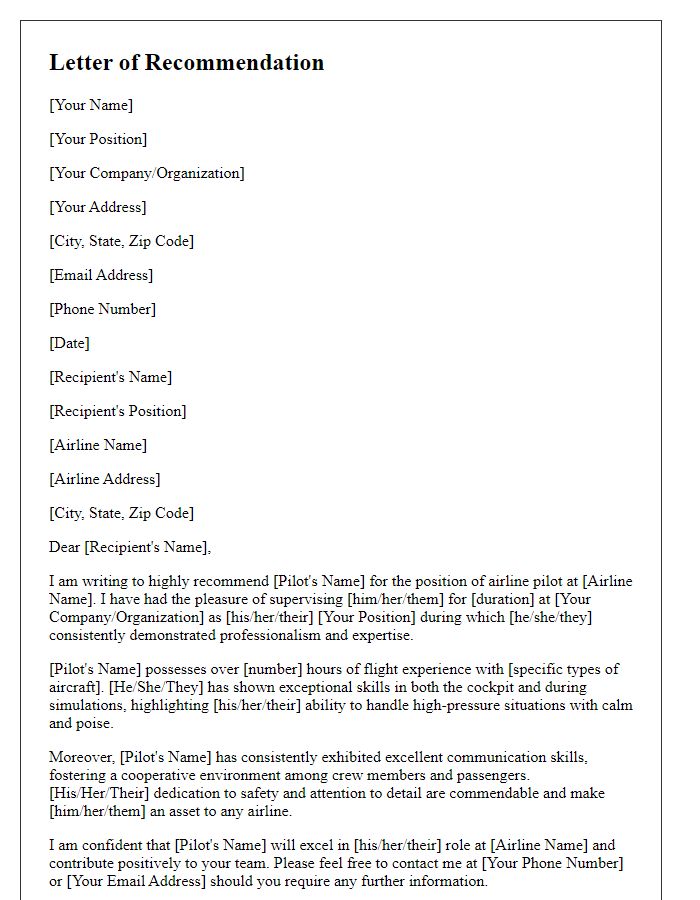
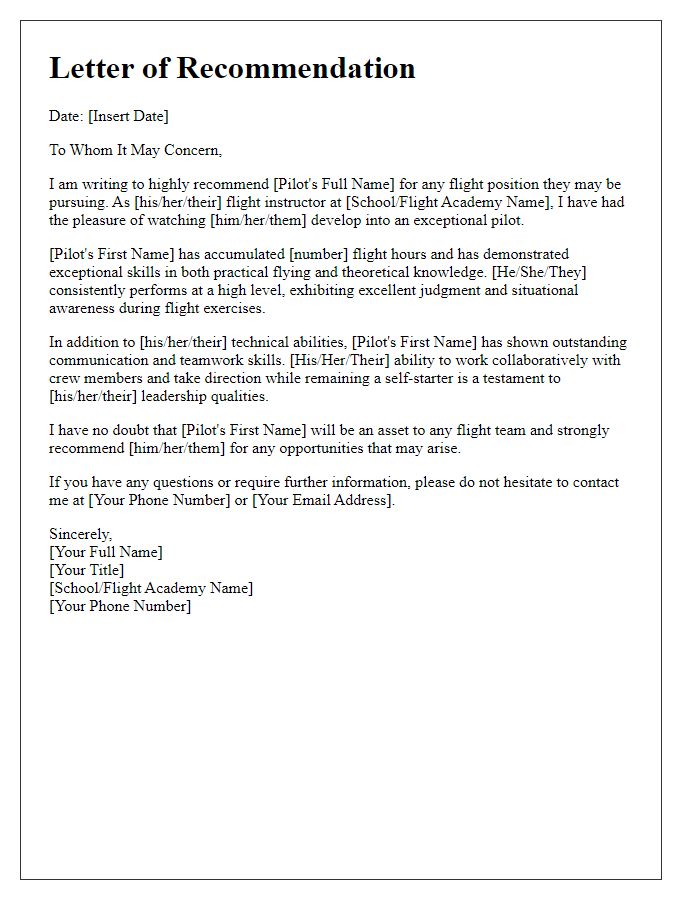
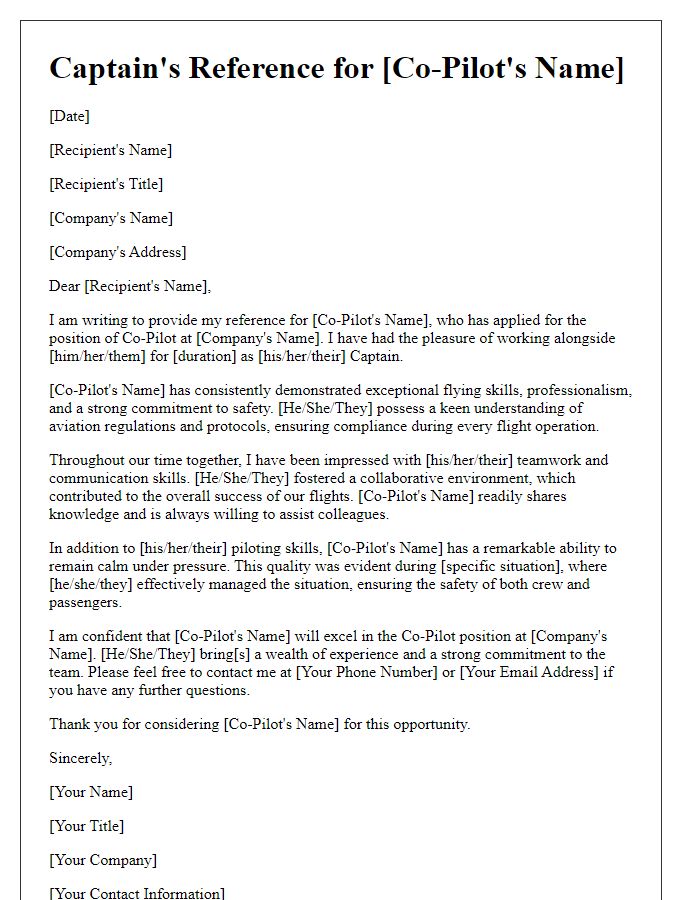
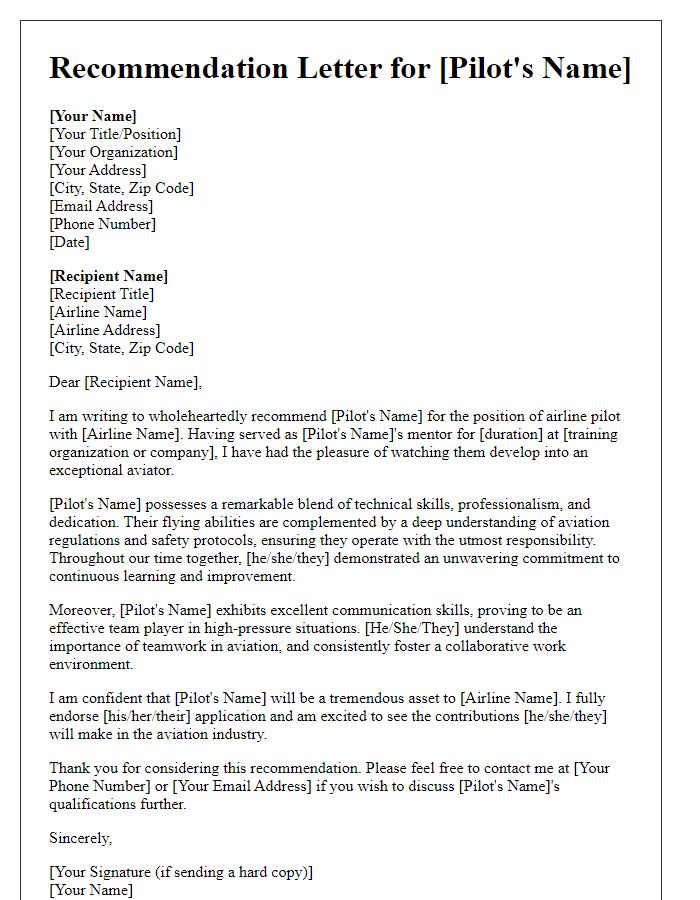


Comments